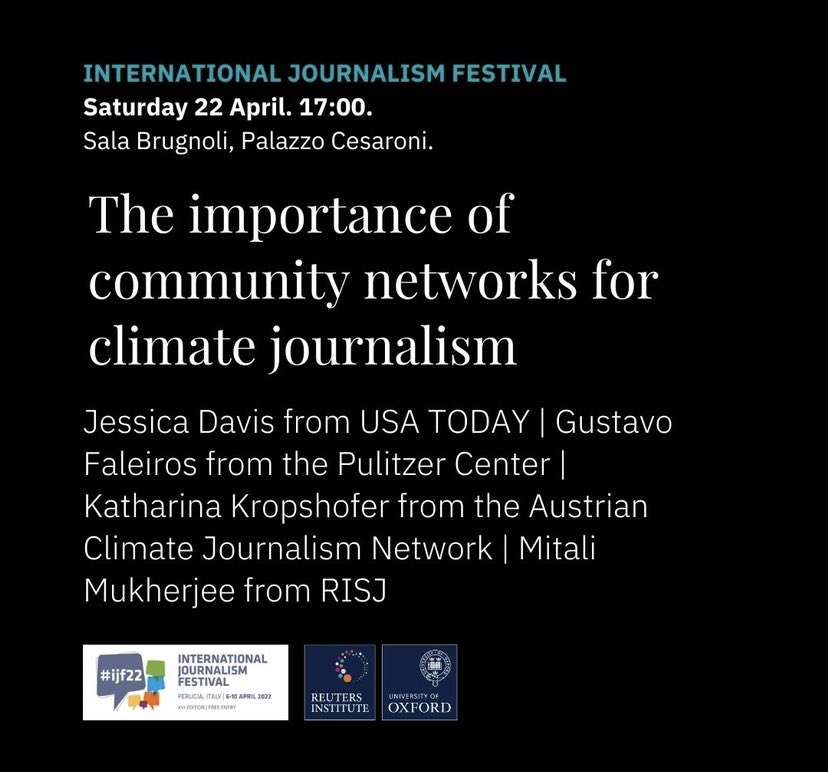Kicking off this fabulous panel on the importance of community networks for climate journalism. Chaired by our own @MitaliLive, it features @jessicaEdavis @USATODAY, @gufalei @pulitzercenter and @KKropshofer @Netzwerk_Klima #ijf23
📺 Watch journalismfestival.com/programme/2023…
🧵Key points
📺 Watch journalismfestival.com/programme/2023…
🧵Key points

"Climate is such an important part of our daily lives that it should be embedded in our news products," says @jessicaEdavis, one of the members of the Oxford Climate Journalism Network #ijf23
",@Netzwerk_Klima was born out our our sense of frustration when seeing our pitches and stories were not taken seriously," says @KKropshofer #ijf23
"Climate networks are very important. Joining the Rainforest Investigations Network changed my career, and I'm sure it's similar with Oxford Climate Journalism Network. Members become climate ambassadors in their newsrooms and that can change things," says @gufalei #ijf23
"Climate impacts are happening now. So how can we tell those stories? We are a subscriber-based news organisation. Building habit is important. So we've built automated severe weather alerts for our readers and doing stories on the context of that," says @jessicaEdavis #ijf23
"The only way to investigate global supply chains involving companies in Egypt, Brazil or Russia is through a global network of reporters," says @gufalei #ijf23
"My teams were covering disaster after disaster. So finding all the context about this, hearing from speakers, speaking off the record with other colleagues... all of that was so valuable," says @jessicaEdavis about her experience as a members of our climate network #ijf23
"We should allow journalists to share traumas and difficult stories. We won't be ok just be pretending to be ok. Newsrooms should also have contingency plans for any safety issues," says @gufalei on the security and mental health dimensions of covering climate change #ijf23
"Starting small for me is the way to start. It also gives me the opportunity to reach parts of the US with climate is politicised. That's why we start with the weather. Climate is a human story and we want people to understand what it means for them," says @jessicaEdavis #ijf23
"If you are having several individuals and outlets working on a single issue, that immediately gets more attention. Audiences understand this. Collaborations are also transformative for the journalists and change their views on data and competitions," says @gufalei #ijf23
If you enjoyed this panel and you are passionate about covering climate, we encourage you to explore the work of our Oxford Climate Journalism Network, run by our own @MitaliLive @arguedasortiz @katherine_dunn reutersinstitute.politics.ox.ac.uk/oxford-climate…
• • •
Missing some Tweet in this thread? You can try to
force a refresh

 Read on Twitter
Read on Twitter
















